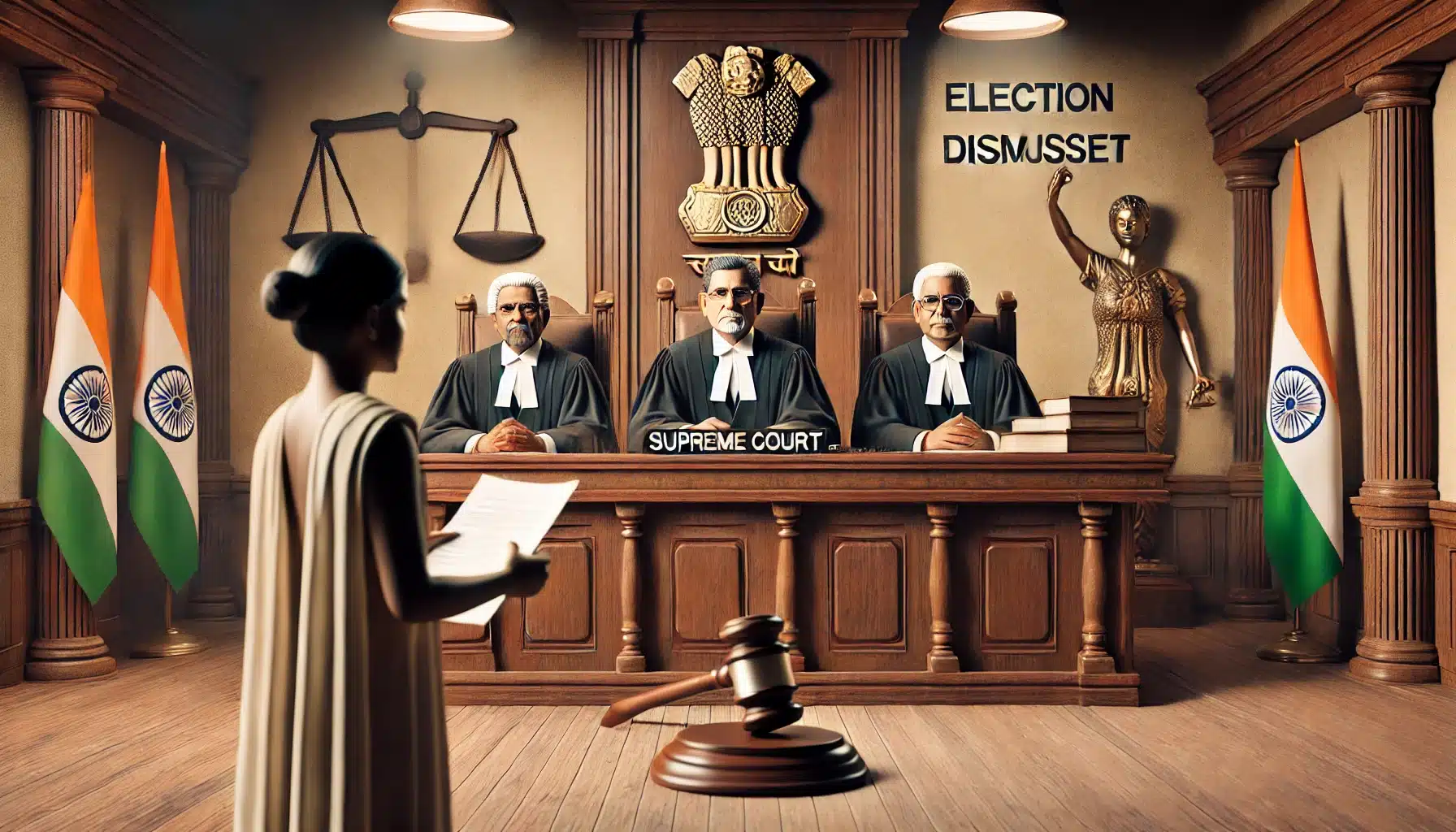On August 21, 2024, the Supreme Court of India dismissed a plea filed by Advocate Mehmood Pracha alleging EVM manipulation during the 2024 Lok Sabha elections. The court found the claims vague and lacking evidence, rejecting the request to form a high-powered committee. The bench, led by Justice San

The Supreme Court of India on August 21, 2024, dismissed a plea filed by Advocate Mehmood Pracha, alleging Electronic Voting Machine (EVM) manipulation during the 2024 Lok Sabha Elections. Pracha, an independent candidate from the Rampur constituency, sought an investigation into the Election Commission of India’s (ECI) handling of EVMs and Voter Verifiable Paper Audit Trail (VVPAT) systems. However, the bench of Justices Sanjiv Khanna and Sanjay Kumar found the petition vague and lacking in specific evidence, noting that Pracha had already approached the Delhi High Court with respect to a particular constituency.
Dismissal of the Petition:
- The plea called for the creation of a High-Powered Committee led by a retired Supreme Court judge to examine alleged EVM manipulations. Pracha argued that violations of election laws and protocols by the ECI had undermined the integrity of the election process.
- The Supreme Court dismissed the petition, calling it “omnibus, vague and rather wide assertions.” The court emphasized that since Pracha had already approached the Delhi High Court regarding the Rampur constituency, this broader petition was not justified.
Observations from the Bench:
- During the hearing, Justice Sanjiv Khanna expressed frustration with the general nature of the allegations, stating, “What is this? Absolutely vague allegations…you want the Committee to go into everything, all the elections!” He further noted that matters related to other constituencies should be brought before their respective High Courts.
- Addressing the photographic evidence presented by the petitioner, Justice Khanna remarked, “We have seen the photographs, etc., we don’t know what is which one…when the machines are taken out, there are some machines which are taken out for display…we don’t know when these photographs were taken. We can’t go into all that.”
Petitioner’s Arguments and Court’s Response:
- Advocate Tasneem Ahmadi, representing Mehmood Pracha, argued that the plea was aimed at ensuring there were “no breaches” in the election process. Ahmadi suggested that the petition be treated as a representation and the petitioner be allowed to approach the Election Commission of India.
- However, Justice Khanna reminded the court that the EVM-VVPAT case had been heard and directions issued. He asserted, “Political parties are conscious of where there is any breach or wrongdoing…they will take care of it. If you have any specific allegation, please go to the court or the candidate should file an election petition.” The court ultimately declined to consider the petition as a representation, dismissing the plea in its entirety.
Previous Rulings on EVM-VVPAT:
- Earlier this year, the Supreme Court rejected pleas seeking 100% cross-verification of EVM and VVPAT records. The court found that concerns of EVM tampering were unfounded and ruled against reverting to the ballot paper system. The reforms, the court asserted, had enhanced transparency and efficiency in the election process.
- In this petition, Pracha alleged arbitrary actions by the ECI, submitting videos, photographs, and documents as evidence. He claimed that continued violations could impact future elections. However, the court found these claims unsubstantiated, reaffirming its confidence in the electoral process and reforms.
- The matter was first listed before a bench of Justices Surya Kant and Ujjal Bhuyan, but it was determined that it should be heard by Justice Sanjiv Khanna, who had led the bench in the previous EVM-VVPAT judgment. Subsequently, the case was transferred to Justice Khanna’s bench.
MEHMOOD PRACHA Versus ELECTION COMMISSION OF INDIA, W.P.(C) No. 473/2024





